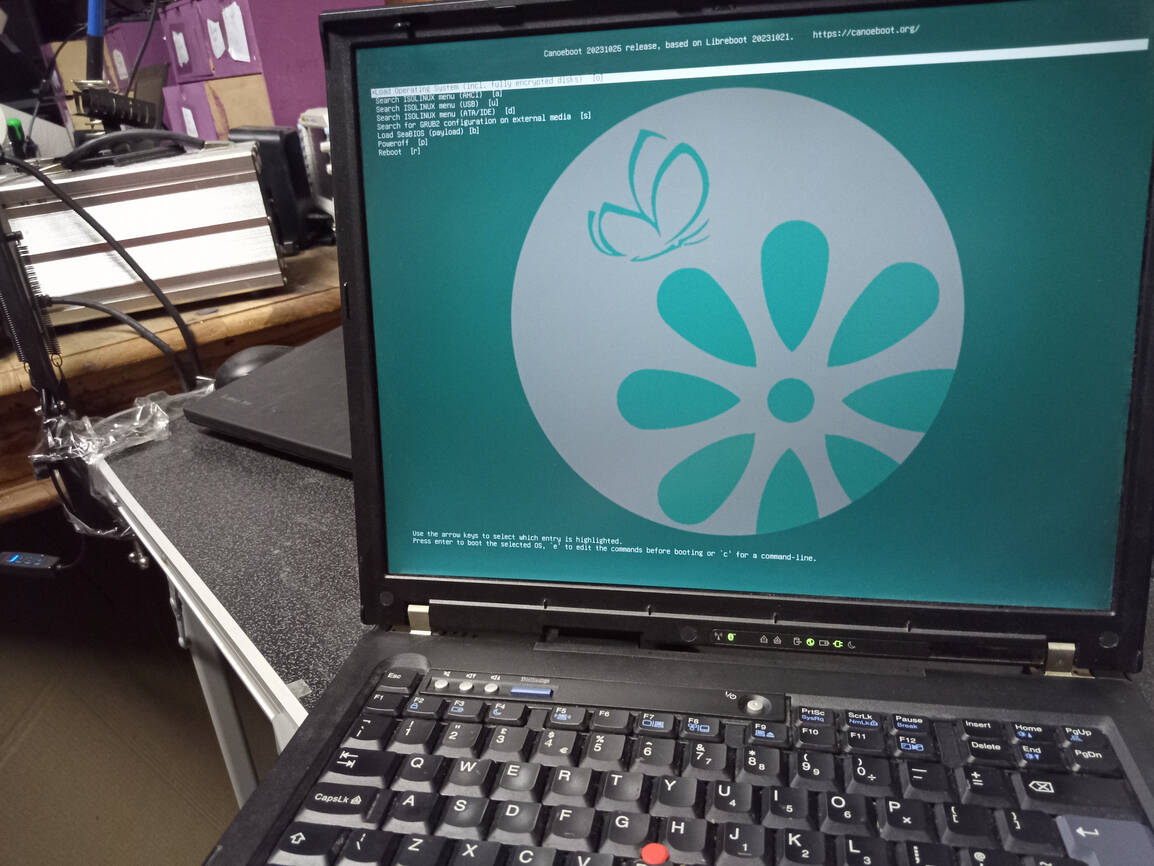The following boards have been added since the Canoeboot 20240612 release:
Sony PlayStation (PCSX Redux Open BIOS) Dell Latitude E4300 (courtesy of Nicholas Chin) Dell OptiPlex 780 MT support Dell OptiPlex 780 USFF support The OptiPlex models are X4X/ICH10 platform, while the E4300 is GM45/ICH9. Both run 100% blob-free, with the Intel ME firmware completely removed, by using modified Intel Flash Descriptors similar to that seen on ThinkPad X200/T400.
E4300 has the same installation procedure as the E6400.
Please elaborate what’s the difference between canoeboot and libreboot, I’m kinda lost
Here i go answering myself
Citing from https://canoeboot.org/about.html
Libreboot no longer complies with GNU policy. In November 2022, Libreboot adopted a more pragmatic policy of allowing any board from coreboot to be supported, while reducing the number of binary blobs as much as possible. Although this may satisfy most people, there exists a minority of people who wish to still have a blob-free coreboot distro, like Libreboot once was.
Prior to November 2022, Libreboot complied fully with GNU policy in providing an entirely blob-free coreboot distribution. The rest of this article will go into a lot more detail, both on this and on the technical aspects, but the gist of it is this:
Canoeboot is, in spirit and in practise, a continuation of the old Libreboot project, prior to that policy change. It maintains sync with Libreboot as closely as possible, while removing any and all non-free code, and disabling/removing any code that could possibly handle it (for example modifying coreboot so as to never add microcode updates or download blobs, even if told to by coreboot configs, since the upstream coreboot project is otherwise engineered to handle these if requested by the user).
Props for finding the answer and sharing it!
Wait, what? Playstation?
Libreboot have this too https://libreboot.org/docs/install/playstation.html
yes this needs details.
do you know how well it fares comparatively with alternatives like coreboot in arenas like power management?
My guess: Generally it should not be that different since most of it is handled by the EC firmware. (Proprietary is OK in FSF’s eyes if it’s baked into the hardware) But Canoeboot does not include microcode updates which could affect the CPU’s power management. (Clocks speed, Vcore, etc.)
i bought a linux laptop a few years ago from a linux company to take advantage of things like coreboot and it’s had a dramatic impact compared to my windows laptops onto which i installed linux.
i’m in the initial stages of creating a new daily driver and i want to consider compatibility with other projects like this to help me re-acclimate to the general public’s linux user experience, so thanks for sharing and your guess; responses like this are really helpful in getting me back into this groove.



